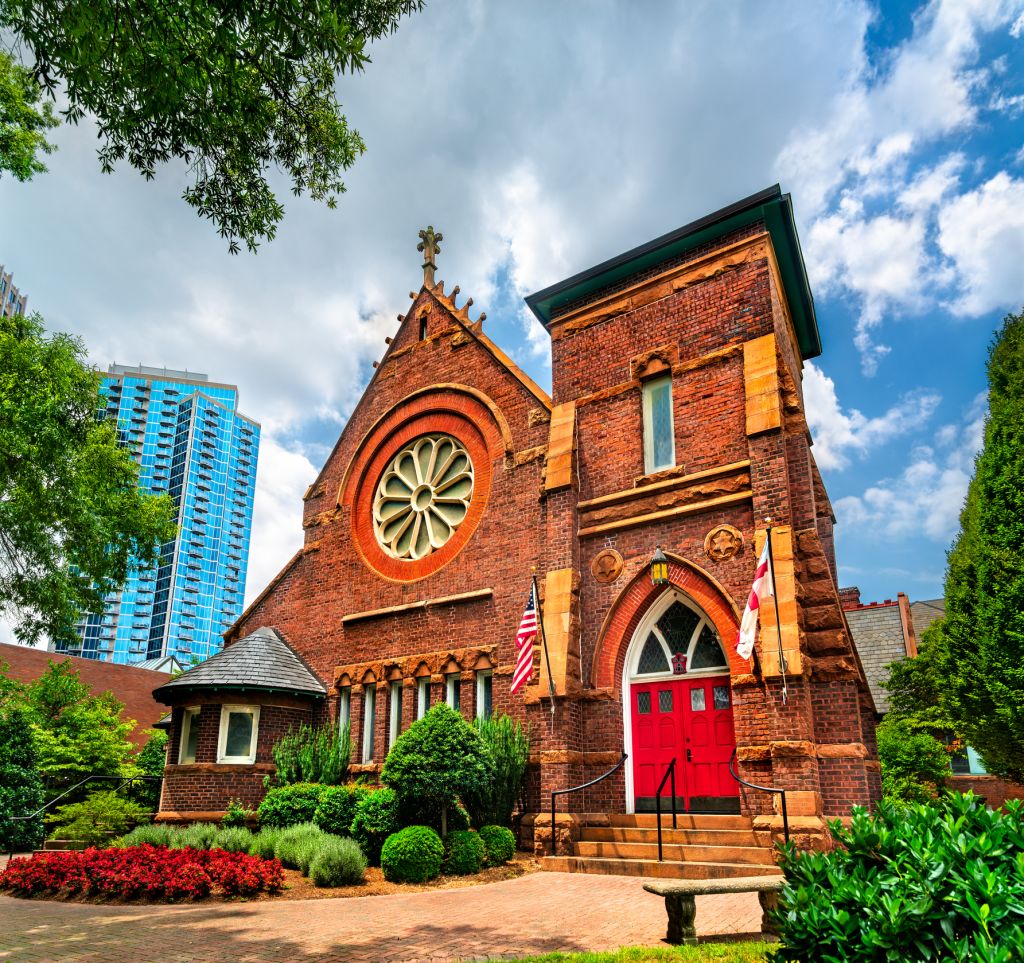Fastest-Growing Churches in the U.S.
What Are The Fastest Growing Churches In The U.S.?

The two church groups experiencing the fastest growth in the United States and Canada include organizations with beliefs that often clash with conventional Christian teachings.
According to the 2008 Yearbook of American & Canadian Churches from the National Council of Churches, Jehovah’s Witnesses and the Church of Jesus Christ of Latter-day Saints (commonly known as Mormons) reported the most significant membership increases year-over-year.
Jehovah’s Witnesses, ranked 25th by overall size, grew by 2.25%, reaching 1.06 million members. Meanwhile, the Church of Jesus Christ of Latter-day Saints, the fourth-largest denomination on the list, saw a 1.56% rise in its membership.
Despite their growth, both groups are often excluded from the broader Christian community due to their controversial doctrines. One major point of contention is Jehovah’s Witnesses’ denial of the Trinity, a core belief for the majority of Christian denominations. Similarly, Mormons face criticism for recognizing additional scriptures such as the Book of Mormon, the Pearl of Great Price, and the Doctrine and Covenants alongside the Bible. Historically, the Southern Baptist Convention categorized Mormonism as a “cult” but later redefined it under the category of “newly developed religions.”
Other denominations among the top 25 U.S. and Canadian church groups also reported modest growth. The Catholic Church grew by 0.87%, the Southern Baptist Convention by 0.22%, the African Methodist Episcopal Zion Church by 0.21%, and the Assemblies of God by 0.19%.
However, these gains contrast sharply with the membership declines of other mainline denominations. The Episcopal Church faced the steepest drop at 4.15%, followed by a 2.36% reduction in the Presbyterian Church (U.S.A.). These losses are often tied to theological disagreements and debates over social issues like the acceptance of homosexuality. The American Baptist Churches in the U.S.A. and the Evangelical Lutheran Church in America also experienced significant reductions, at 1.82% and 1.58%, respectively.
Rev. Dr. Eileen W. Lindner, editor of the 2008 Yearbook, suggested that the decreasing membership rates could be partially attributed to increasing secularization in society. However, she urged caution against jumping to conclusions, noting the complex behaviors of Millennials. Many individuals in their twenties and thirties regularly attend services but resist formal membership commitments.
The two-decade trend of membership shifts illustrates the complex dynamics of the U.S. religious landscape. For instance, while the United Methodist Church remains the third-largest Christian group in the nation with nearly 8 million members, it experienced a nearly 1% membership decline.
Among the 25 largest groups, three are mainline Protestant denominations, three are Pentecostal organizations, and six originate from historic African American church traditions.
Top 25 Churches by Membership (as listed by the Yearbook):
- Catholic Church – 67,515,016
- Southern Baptist Convention – 16,306,246
- United Methodist Church – 7,995,456
- Church of Jesus Christ of Latter-day Saints – 5,779,316
- Church of God in Christ – 5,499,875
- National Baptist Convention, U.S.A., Inc. – 5,000,000
- Evangelical Lutheran Church in America – 4,774,203
- National Baptist Convention of America, Inc. – 3,500,000
- Presbyterian Church (U.S.A.) – 3,025,740
- Assemblies of God – 2,836,174
- African Methodist Episcopal Church – 2,500,000
- National Missionary Baptist Convention of America – 2,500,000
- Progressive National Baptist Convention, Inc. – 2,500,000
- Lutheran Church–Missouri Synod (LCMS) – 2,417,997
- Episcopal Church – 2,154,572
- Churches of Christ – 1,639,495
- Greek Orthodox Archdiocese of America – 1,500,000
- Pentecostal Assemblies of the World, Inc. – 1,500,000
- African Methodist Episcopal Zion Church – 1,443,405
- American Baptist Churches in the U.S.A. – 1,371,278
- United Church of Christ – 1,218,541
- Baptist Bible Fellowship International – 1,200,000
- Christian Churches and Churches of Christ – 1,071,616
- Orthodox Church in America – 1,064,000
- Jehovah’s Witnesses – 1,069,530
This snapshot of the fastest-growing and largest church groups highlights not only the shifts in membership but also points to the broader cultural and theological factors shaping religious trends in the U.S. today.












